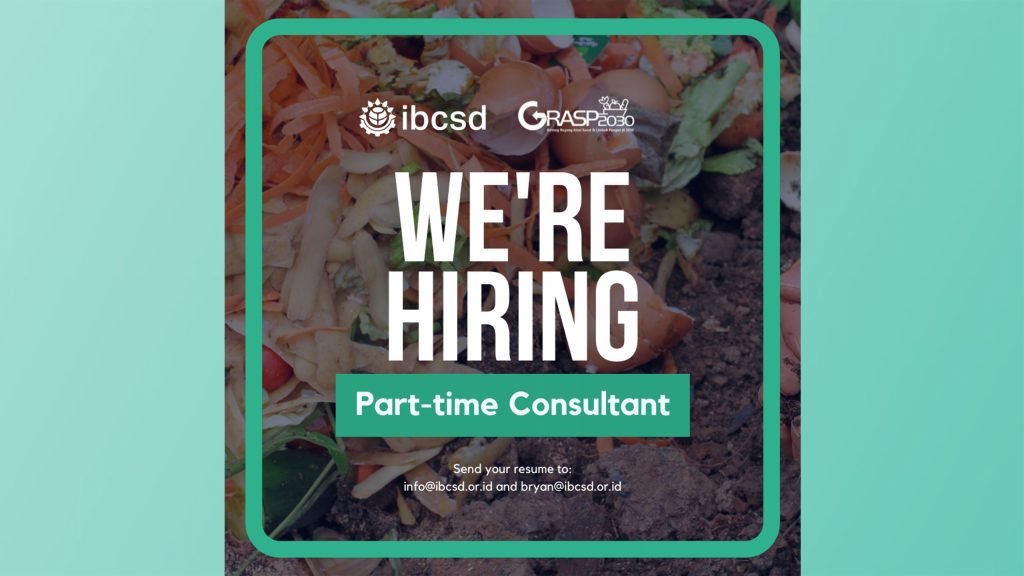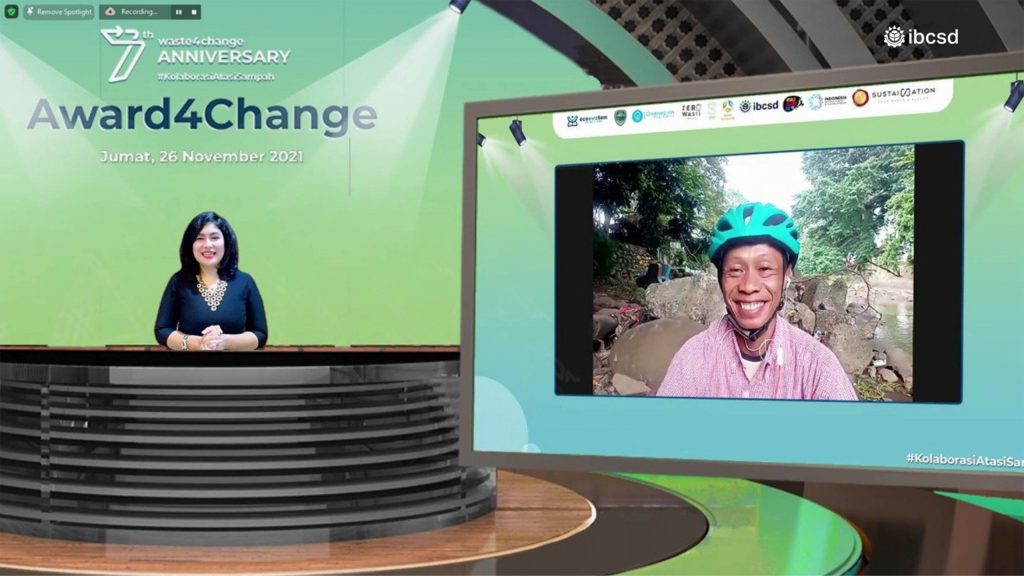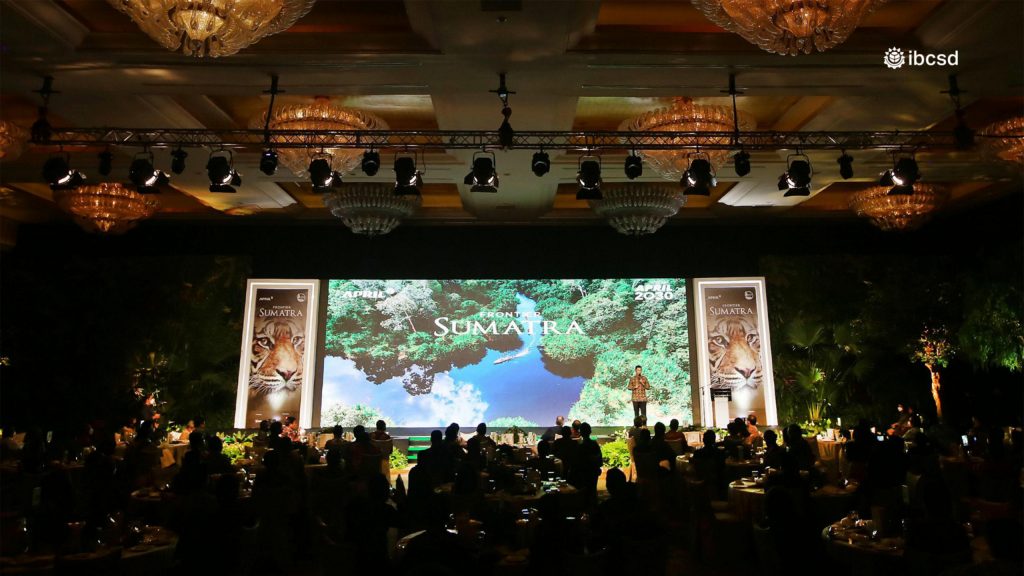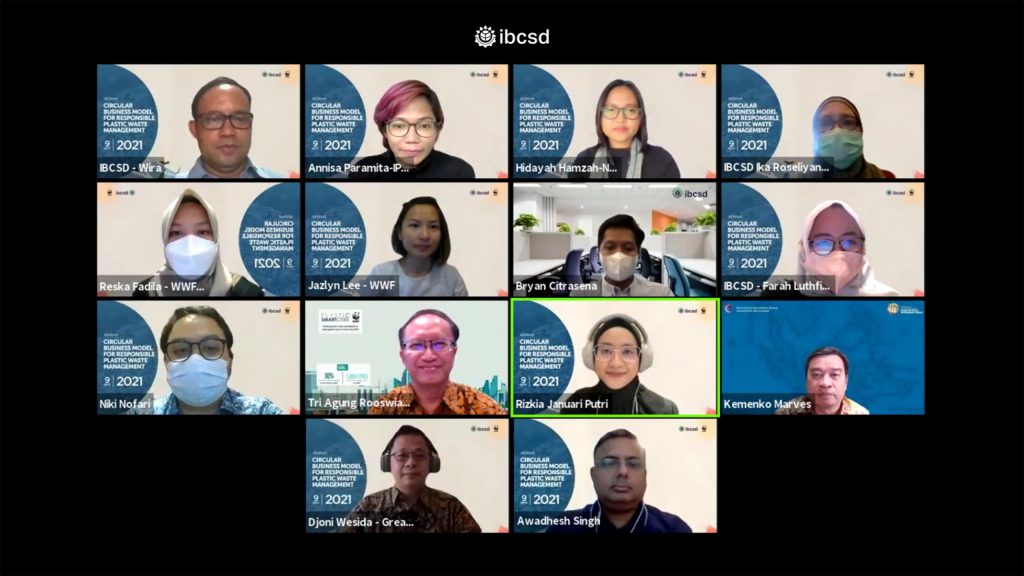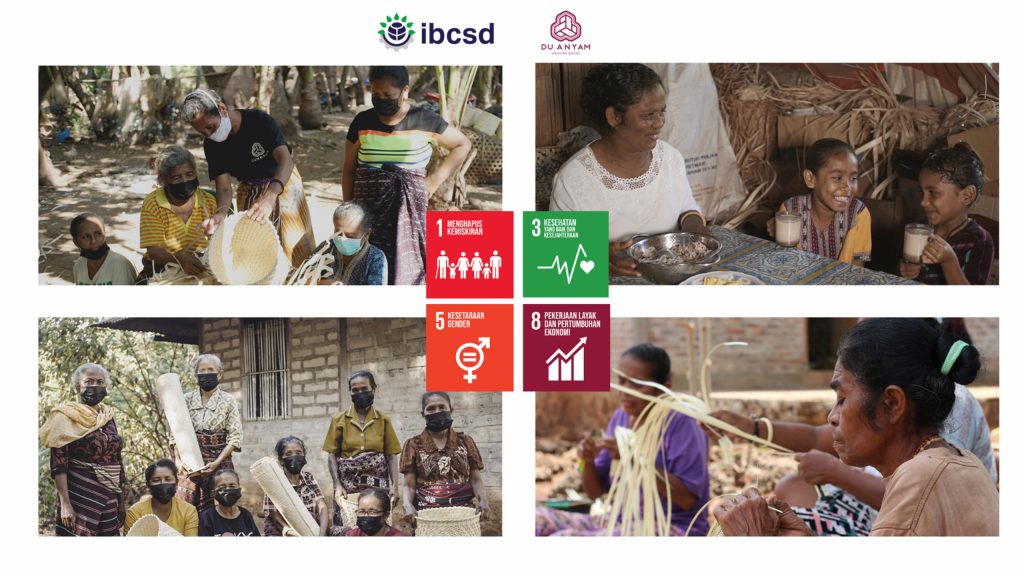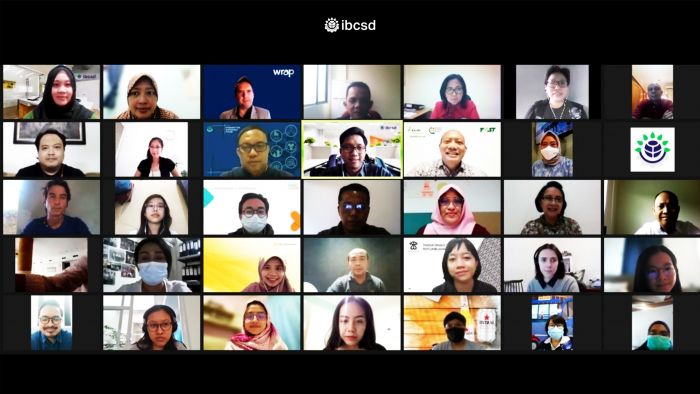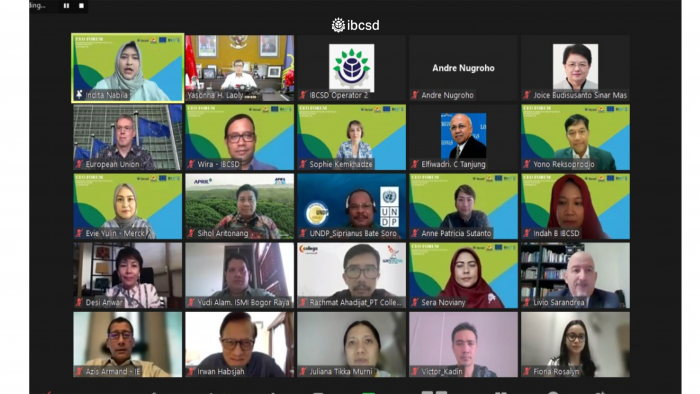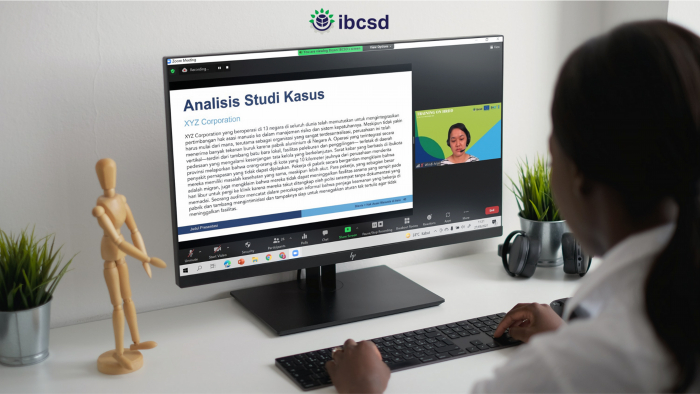A Journey Towards Net Zero Emission (NZE): What does NZE Mean for Private Sector?
climate change adaptation and mitigation among private sector, the Indonesia Business Council for Sustainable Development (IBCSD) and the Indonesian Chamber of Commerce and Industry (KADIN) collaborated in conducting a virtual webinar “What net zero emission means for the private sector” (14/12). This event is part of a bigger IBCSD initiative entitled “Towards Net Zero Emission” to encourage business leadership and collective action in initiating a concrete long-term plan toward a low-carbon economy and net zero emission by following the government’s goals.
Following the Paris Agreement, which was revisited at COP26, the number of companies declaring their commitment to net-zero emissions and taking action to tackle climate change has tripled globally. At least one of the world’s five largest publicly traded companies has committed to zero net emissions by 2050.[1]
In her remarks as the President of IBCSD, Shinta W Kamdani stated, “As we all know, Indonesia is striving for low-carbon economic development by expanding measures to mitigate and adapt to climate change. To achieve net zero emissions by 2050, in line with global business trends and national targets, IBCSD and KADIN will work together to raise public awareness and understanding of the necessity of the NZE transition, promote business leadership and collective action, and collaborate among diverse stakeholders. The discussion today is intended to be one of the milestones that contribute to the private sector managing Net Zero Emissions in order to establish a sustainable economy.”
In her remarks at the Webinar “Journey Towards Net Zero Emission (NZE): What Does NZE Mean for Private Sector?” which was held virtually by IBCSD (13/12), the Director-General of Climate Change Control, Ministry of Environment and Forestry, Ir. Laksmi Dhewanti, MA explained, “Through the Nationally Determined Contribution (NDC) target, Indonesia has committed to reducing GHG emissions by up to 41% by 2030 with the support of international partnership. Indonesia’s unconditional target of 29 % NDC has been dispersed to five key sectors, including forestry and other land uses, energy, waste, industry process, and agriculture. The most significant contributors to the NDC objectives are the forestry and energy industries. The Long-Term Strategy on Low Carbon and Climate Resilience (LTS-LCCR) was developed with a long-term policy strategy in mind until 2050. This document provides guidance on how to set NDC and policy reform goals in light of current developments and demands. In essence, this endeavor is not just the responsibility of the government, but it also emphasizes the importance of all stakeholders’ contributions. As a result, we encourage the participation of various stakeholders, particularly the private sector in the implementation of the NDC and the climate change mitigation and adaptation strategy. More collaboration and networking hopefully will occur as a result of this event to meet NDC goals.”
As for several steps that have been taken by the government for low-carbon development, the Director of the Environment of the Ministry of National Development Planning/BAPPENAS, Ir. Medrilzam stated “Currently undergoing a green economic transformation is based on the premise of low carbon development. According to the Bappenas scenario, the green economy is expected to increase per capita income by about 6% in Indonesia Emas 2045. Indonesia will need massive investments of around 3-5% of GDP every year from now on to achieve the NZE. The government will be unable to finance all of them. As a result, the government provides fiscal tax incentives and import taxes for New Renewable Energy (NRE) Developers, as well as non-fiscal incentives like as license liberalization and prizes, to encourage private sector economic engagement. However, there are still risks of stranded assets, planning for green employment migration, and knowledge and innovation transfer. Indonesia will only become a market for technology from wealthy countries if we do not significantly innovate on technology.
On the same occasion, Executive Director of Institute for Essential Services Reform (IESR), Fabby Tumiwa added, “Business may implement four solutions; the first of which is to reduce reliance on fossil fuels through RNE, electrification, and the use of clean energy sources in response to increasing emissions from the sector. If we want to attain Net Zero Emissions by 2030, renewable energy should account for at least half of the primary energy supply. As a result, companies should conduct an inventory of their contribution to greenhouse gas emissions, set explicit objectives, and provide measurable transparency of target performance to the public in order to match the corporate NZE aim with the Paris Agreement target in 2030.”
Seeing this, Regional Lead – Commit to Action (CTA) Carbon Disclosure Project (CDP), Amelia Tan said, “In order to attain NZE, businesses must have science-based targets, both short and long-term by making adjustments in terms of emission residual mitigation and neutralization. The Science Based Target Initiative (SBTi) will assists your business in determining how much and how rapidly it can cut greenhouse gas emissions while also driving actual action in its operations. The International Sustainability Standard Board (ISSB) has produced financial reporting sustainability disclosure requirements that have been incorporated with state and stakeholder regulations referencing the SBTi.”
Apart from the government, a low-emissions transition also needs to be carried out by the private sector. Head of Commission on Climate Change KADIN, Dharsono Hartono explained “The issue of Net Zero Emission isn’t going away anytime soon. KADIN has 7 priority focusing on decarbonization of diverse private sectors to support the Presidential Decree on the Economic Value of Carbon, which is based on the NZE objectives of countries and businesses. One of them by concentrating on restoration and conservation initiatives which represents a significant potential for Indonesia. We believe that Indonesia has 300 billion tons of CO2 stored, which might be the country’s entry point into the carbon market. In this context, KADIN has begun to carry out many activities as a government business partner, including webinars, working on the sale of domestic carbon credits that can assist the government in meeting NDC objectives, and pushing for public-private partnerships.”
Joining the session as discussant, Azis Armand, Vice President and Group CEO of Indika Energy explained “Indika, as a holding company with an 80% coal energy portfolio, considers the crucial need to decarbonize its operations and portfolio to decrease its carbon footprint. Indika focuses on transferring energy to solar panels and mobile combustion fossil fuels to electric automobiles in its operations. Indika has divested high-carbon assets and invested in low-carbon economies in our asset portfolio. We believe Indika can reach net zero emissions in 2050 by achieving a 20% decrease in emissions in 2025 and a 40% utilization of renewable energy technologies in 2030.”
Meanwhile Deputy Director of APRIL Group’s Sustainability and Stakeholder Engagement, Dian Novarina shared, “With four pillars, the APRIL Group aspires to move to NZE by 2030. One of these is a positive climate target that includes net zero emissions from land usage, increasing the use of renewable energy in fiber operations to 50% and mill operations to 90%, and decreasing carbon emissions in all products to 25%. All APRIL 2030 commitments have precise indicators that make them measurable, auditable, and transparent.”
Desi Anwar, the webinar moderator concluded 2050 Net Zero Emission is a collective goal to which all stakeholders must commit in energy transition plan, collaborate in innovation, technology, and investment, and transparent reporting as well as calculations. Net Zero Emission is not only the responsibility of one corporation or one country, but of the entire globe as residents of the planet.
Rewatch the discussion here: A Journey Towards NZE: What does NZE Mean for Private Sector?
For further the webinar video, please access https://rebrand.ly/VideoNZE2021
To download the material, please go through https://rebrand.ly/MateriNZE2021
